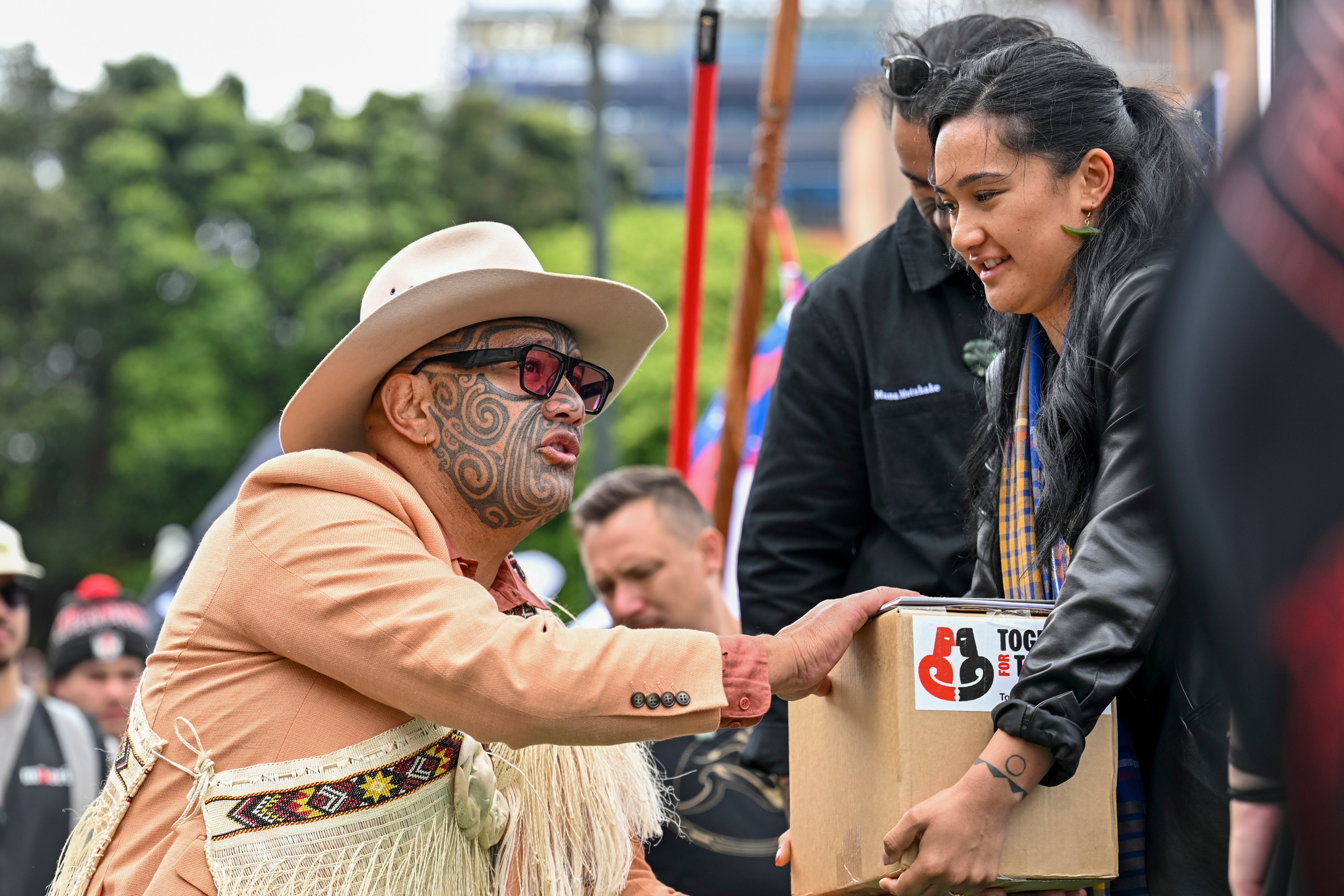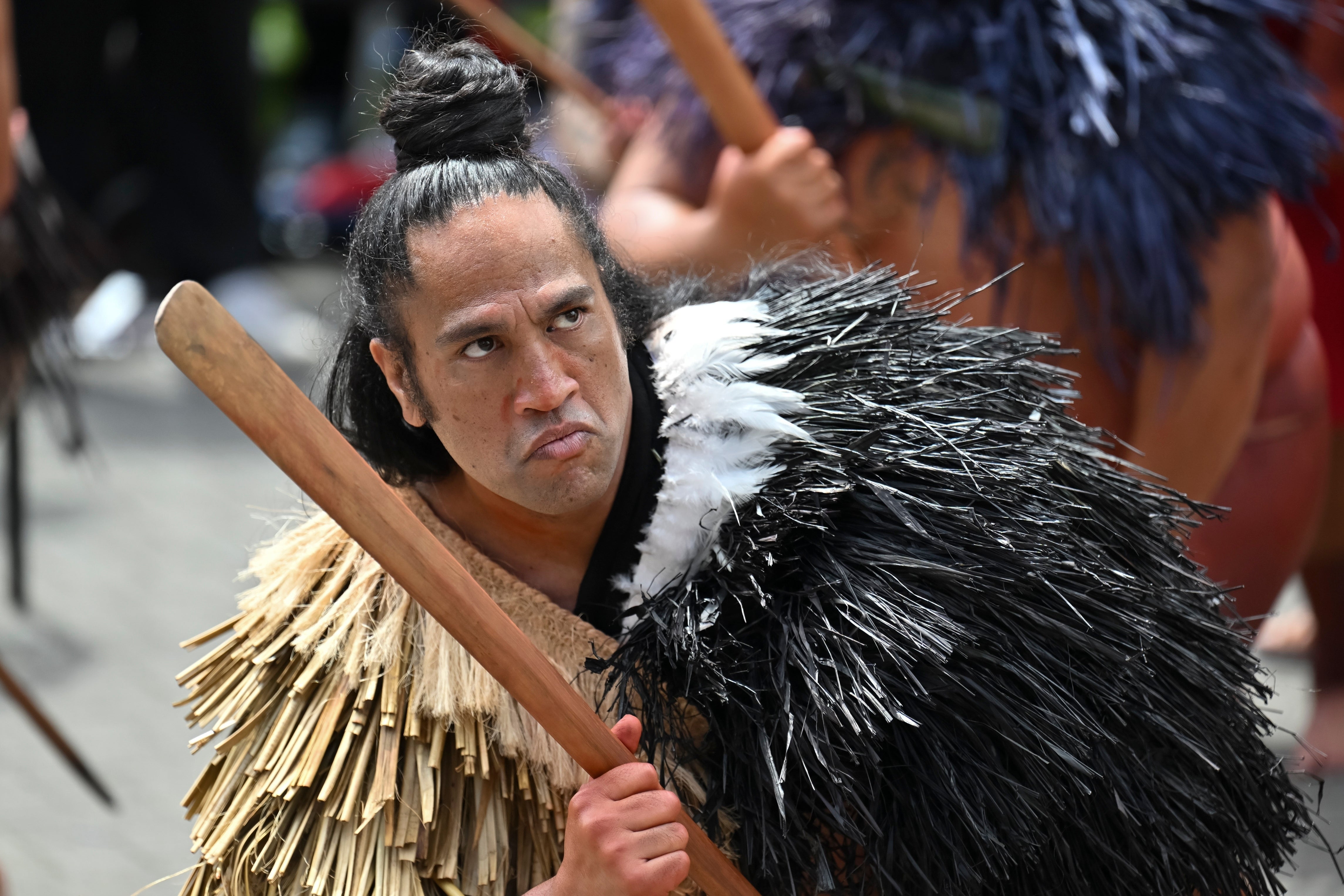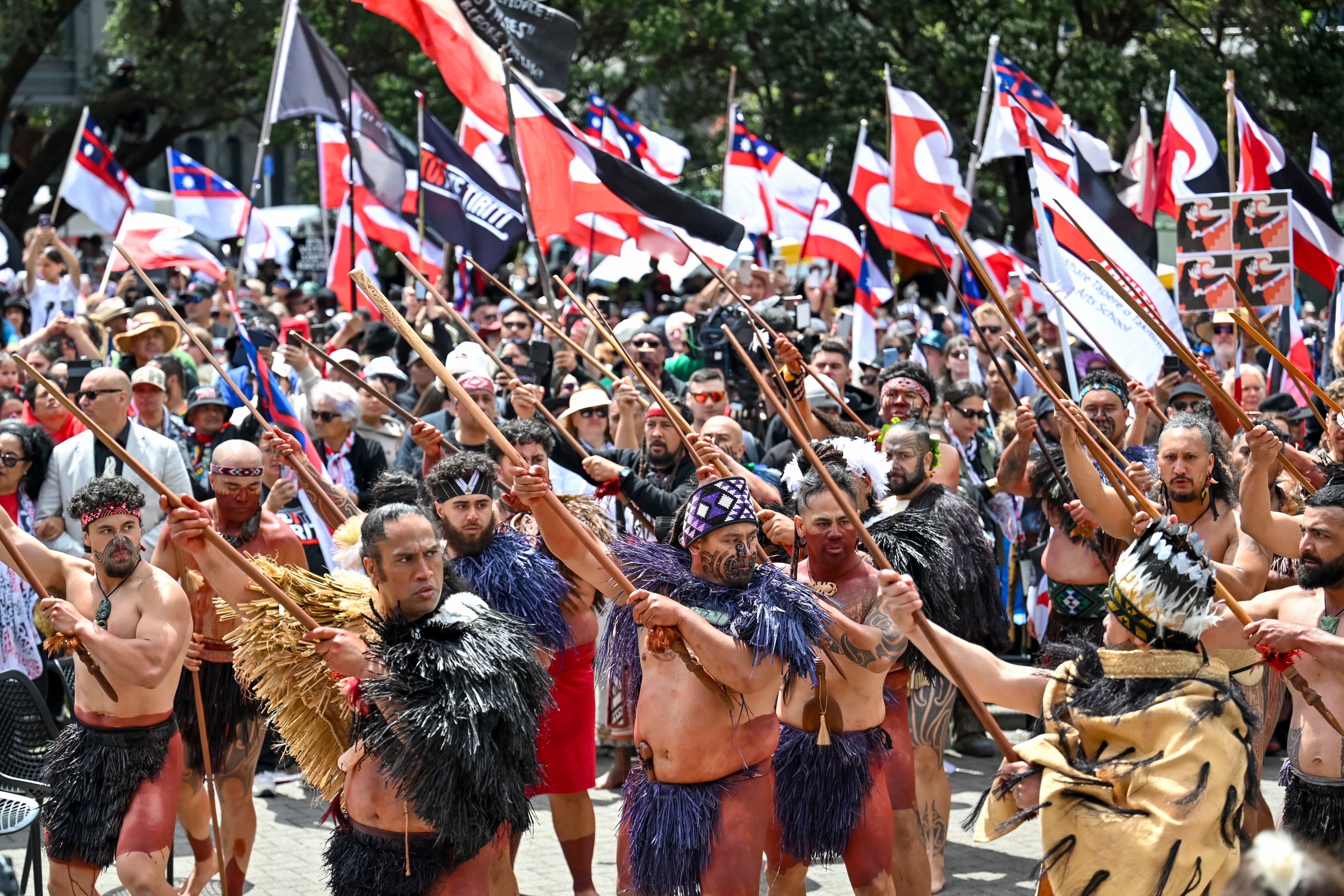Tens of thousands of New Zealanders gathered outside the parliament in one of the country’s largest demonstrations to oppose the Treaty Principles Bill, which critics say undermines Maori rights and threatens race relations.
Introduced by the libertarian ACT New Zealand party, the bill aims to narrow the interpretation of the Treaty of Waitangi, a foundational agreement signed in 1840 between the British Crown and the Maori chiefs.
“I’m here for my grandchildren, my children and for their children,” Hoana Hadfield from Wellington who was marching in a protest for the first time told Reuters.
“I think it’s important that we keep our kaupapa which is our values as Maori and our culture and it’s a real big thing for us to have cultural identity.”
While the bill lacks sufficient support to pass, opponents see it as an attempt to reverse decades of progress in empowering the Maori, who face significant social disadvantages despite making up 20 per cent of the population.
By midday local time on Tuesday, police reported that the parliament grounds had reached capacity, with over 35,000 people estimated to be participating in the march. As the leading group of marchers arrived, the crowd extended approximately 2km through the city.
“There is a real strength and pride,” Hayley Komene, a protester from Wellington was quoted as saying by The Guardian. “There are people from lots of different backgrounds here for the same reason - it’s beautiful.”

She called the government’s Maori policies “absolutely ridiculous”.
“Te tiriti is a constitutional document of our country.”
The Maori Queen, Nga wai hono i te po, was also present at the protest.
“The Maori Queen is willing to help lead a conversation about nationhood and national unity but she will not accept a unilateral process that undermines the treaty,” her spokesperson, Ngira Simmons, said in a statement.

The protest on Tuesday followed a nine-day march that mobilised thousands of people nationwide, culminating in Wellington, where demonstrators, including many in traditional Maori attire, chanted “kill the bill”.
Some protesters donned traditional attire, including feathered headgear, cloaks and traditional Maori weapons, while others wore t-shirts bearing the slogan Toitu te Tiriti (Honour the Treaty).
“Just fighting for the rights that our tupuna, our ancestors, fought for,” Shanell Bob, a protester, told the Associated Press. “We are fighting for our tamariki, for our mokopuna, so they can have what we haven’t been able to have,” she added, using the Maori words for children and grandchildren.

“The treaty is a document that lets us be here in Aotearoa so holding it up and respecting it is really important,” Ben Ogilvie, who is of Pakeha or New Zealand European descent, said, using the Maori name for the country.
“I hate what this government is doing to tear it down.”
Prime minister Christopher Luxon and members of the governing coalition have yet to fully engage with protest leaders, though some politicians plan to meet with them.
New Zealand’s parliament was temporarily halted by Maori politicians performing a haka in protest last week, in scenes that were seen around the world.
Additional reporting by agencies.







